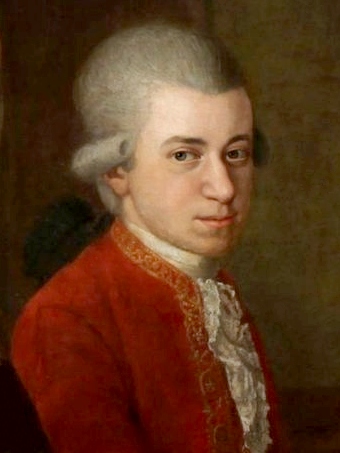
[ad_1]
Mozart, 2024
This Week in Classical Music: January 22, 2024. Mozart. The principle occasion of this week is Mozart’s birthday, on January 27th. Wolfgang Amadeus was born in 1756 in Salzburg. One of many  best composers in historical past, he excelled in virtually each style of classical music. His operas are of the very best order (simply consider the Magic Flute, Don Giovanni, the Marriage of Figaro, or Così fan tutte, however then there are a number of operas, although not as in style, reminiscent of La clemenza di Tito, The Abduction from the Seraglio, or Idomeneo, that may make every other composer proud). His symphonies are the head of the orchestral music of the Classical interval, and so are his piano concertos. His violin concertos have been written when he was very younger (the final one, no. 5, “Turkish” was accomplished when Mozart was 19) however have been already superb. He wrote many piano sonatas that predate Beethoven’s, and fantastic violin sonatas (he was a virtuoso performer of each devices). After which there’s his chamber music: trios, quartets for all combos of devices, not simply the strings, quintets, and way more. He did all that in simply 35 years. Along with the “commonplace” piano and violin concertos, Mozart wrote concertos for a lot of totally different wind devices: the horn (4 of them), bassoon, flute, oboe, and clarinet. His Clarinet concerto in A significant, Ok. 622 is marvelous. It’s a late piece, late, after all, in Mozart’s phrases – he was 35 in 1791 when it was accomplished, lower than two months earlier than his demise of nonetheless unknown causes (one factor we all know for certain is that he has not been poisoned by Antonio Salieri): Mozart was already fairly in poor health whereas engaged on the concerto. The concerto was written for Anton Stadler, a virtuoso clarinetist and a detailed pal of Mozart’s (they’d identified one another since 1781) for whom he additionally wrote his Clarinet Quintet. Stadler invented the so-called basset clarinet, a model of the instrument that enables the performer to succeed in decrease notes, and that was the instrument for which Mozart wrote the concerto. We’ll hear it carried out by a gifted German clarinetist Sabine Meyer with the Staatskapelle Dresden below the route of Hans Vonk.
best composers in historical past, he excelled in virtually each style of classical music. His operas are of the very best order (simply consider the Magic Flute, Don Giovanni, the Marriage of Figaro, or Così fan tutte, however then there are a number of operas, although not as in style, reminiscent of La clemenza di Tito, The Abduction from the Seraglio, or Idomeneo, that may make every other composer proud). His symphonies are the head of the orchestral music of the Classical interval, and so are his piano concertos. His violin concertos have been written when he was very younger (the final one, no. 5, “Turkish” was accomplished when Mozart was 19) however have been already superb. He wrote many piano sonatas that predate Beethoven’s, and fantastic violin sonatas (he was a virtuoso performer of each devices). After which there’s his chamber music: trios, quartets for all combos of devices, not simply the strings, quintets, and way more. He did all that in simply 35 years. Along with the “commonplace” piano and violin concertos, Mozart wrote concertos for a lot of totally different wind devices: the horn (4 of them), bassoon, flute, oboe, and clarinet. His Clarinet concerto in A significant, Ok. 622 is marvelous. It’s a late piece, late, after all, in Mozart’s phrases – he was 35 in 1791 when it was accomplished, lower than two months earlier than his demise of nonetheless unknown causes (one factor we all know for certain is that he has not been poisoned by Antonio Salieri): Mozart was already fairly in poor health whereas engaged on the concerto. The concerto was written for Anton Stadler, a virtuoso clarinetist and a detailed pal of Mozart’s (they’d identified one another since 1781) for whom he additionally wrote his Clarinet Quintet. Stadler invented the so-called basset clarinet, a model of the instrument that enables the performer to succeed in decrease notes, and that was the instrument for which Mozart wrote the concerto. We’ll hear it carried out by a gifted German clarinetist Sabine Meyer with the Staatskapelle Dresden below the route of Hans Vonk.
Muzio Clementi, who competed as a keyboard participant and composer with Mozart on the court docket of Emperor Josef II, was born on January 23rd of 1752. He, Henri Dutilleux, Witold Lutoslawski, the pianists Josef Hofmann, John Ogdon and Arthur Rubinstein, the cellist Jacqueline du Pré and Wilhelm Furtwängler, a fantastic conductor, all of whom have been born this week, must wait for one more time.
[ad_2]